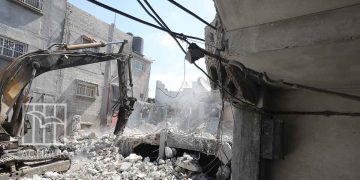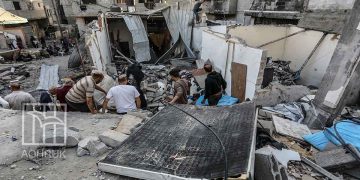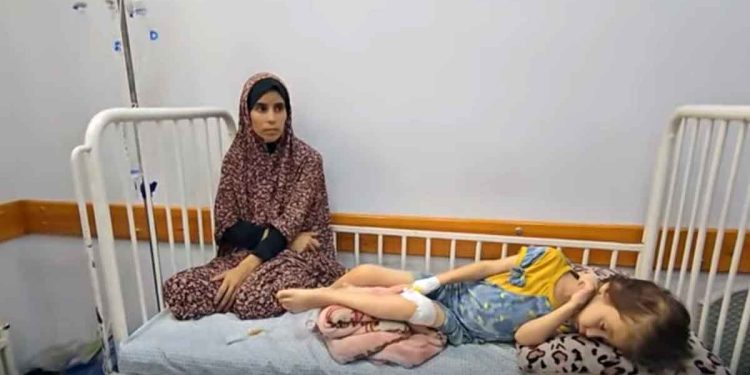The Gaza Strip is experiencing one of the darkest periods in its modern history, with its civilian population subjected to a suffocating blockade in which starvation is being used as a weapon of war, in blatant violation of all international laws and norms.
In the past 24 hours, hospitals in the Strip recorded the deaths of two people due to famine and malnutrition, raising the total number of those who have died of hunger or its complications to 271, including 112 children. This figure represents only part of the wider catastrophe, as tens of thousands of civilians face the threat of slow death amid severe food shortages and the absence of medical treatment.
The use of starvation as a weapon of collective punishment amounts to a war crime under international humanitarian law. It also falls within the scope of genocide when civilians are deliberately targeted by being deprived of food with the intent to destroy them, in whole or in part. Furthermore, the Geneva Conventions explicitly prohibit exposing civilians to such conditions and oblige an occupying power to ensure the provision of food and medicine, rather than denying them access to it.
Since 2 March 2025, the occupying authorities have closed all crossings into Gaza and have prevented the entry of food and medical aid, except for minimal amounts that are nowhere near sufficient to meet basic needs. This has left hospitals unable to save those suffering from malnutrition.
Estimates indicate that one in five children under the age of five is suffering from acute malnutrition; a figure that reflects the severity of the slow-killing policy inflicted upon an entire generation.
What is happening in Gaza can only be described as a full-fledged act of genocide, deliberately and systematically carried out by the occupying authorities through the denial of food and medicine, the closure of crossings, and the deprivation of the population of the basic essentials of life. This places the international community before a stark test of its commitment to international humanitarian law and to the protection of civilians in times of conflict.



























